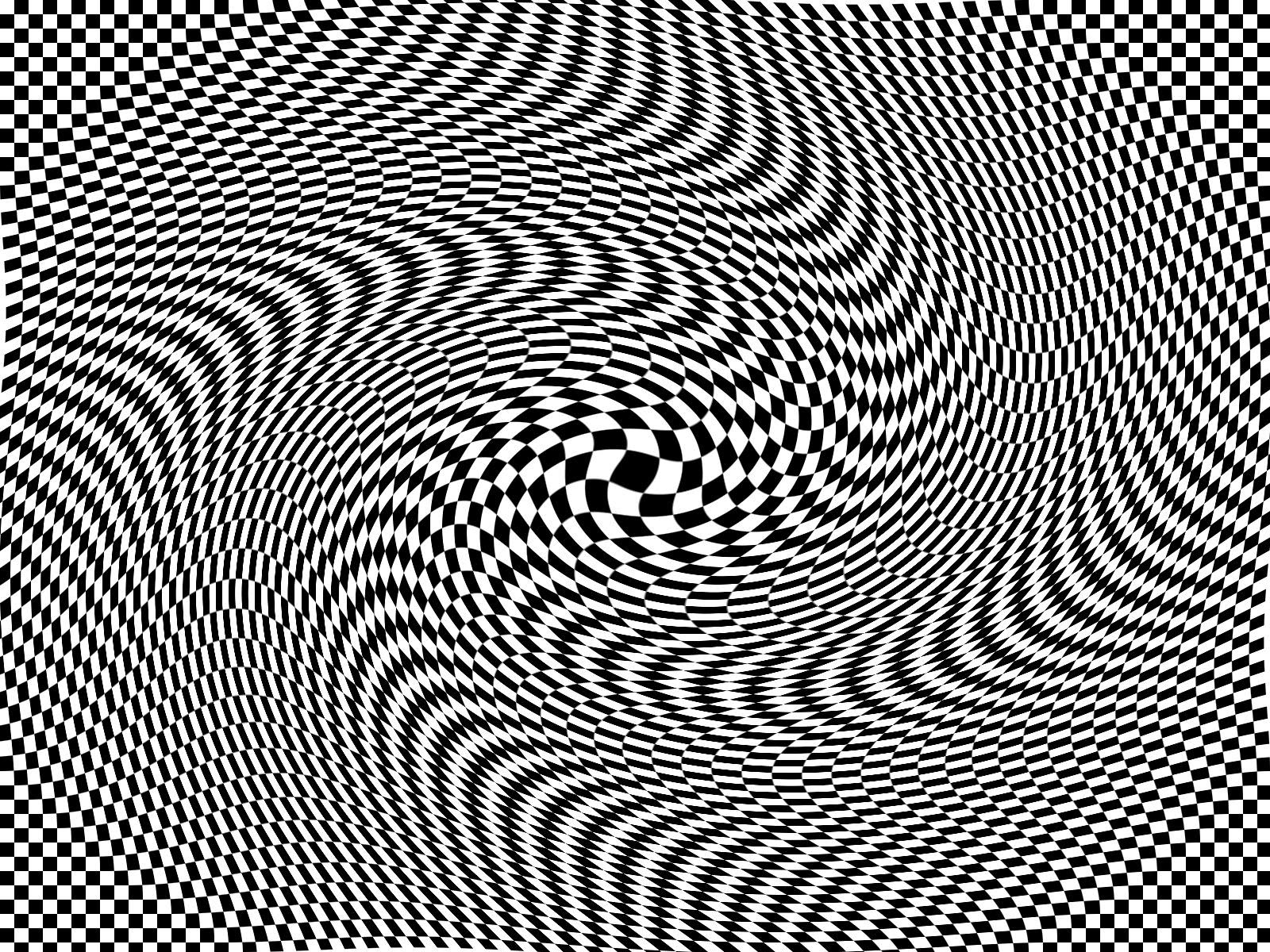Have you ever stared at a pattern, only to feel like it's moving, shifting, or even pulsing? That's the captivating power of a well-designed trippy background, especially those using the stark contrast of black and white. These visuals, often categorized as optical illusions, have a rich history and continue to intrigue artists, designers, and anyone seeking a touch of the surreal.
Black and white, at their core, represent the extremes of contrast. This stark difference is what allows for the creation of depth, movement, and the illusion of three-dimensionality on a flat surface. When these colors are arranged in specific patterns, they can trick our brains into perceiving motion where there is none. These patterns often play with geometric shapes, lines, and spirals, creating a sense of disorientation and wonder.
The history of these mesmerizing designs can be traced back to Op art, a movement that emerged in the 1960s. Artists like Victor Vasarely and Bridget Riley utilized bold black and white patterns to create illusions of movement and depth. These artworks challenged the way we perceive reality, proving that art could be both visually stimulating and intellectually engaging.
But the allure of black and white trippy patterns goes beyond the art world. Today, we see these designs everywhere, from fashion to interior décor. They add an element of intrigue to clothing, accessories, and home furnishings. In graphic design, they're used to make posters, album covers, and websites more eye-catching and memorable.
One of the key reasons behind the enduring appeal of black and white trippy designs lies in their ability to evoke a range of emotions. Some may find them unsettling or even dizzying, while others find them calming and hypnotic. This subjective experience adds to their mystery and allure.
While there are no hard and fast rules for creating or interpreting black and white trippy backgrounds, understanding the basics of optical illusions can enhance your appreciation. For example, the use of converging lines can create an illusion of depth, while repeating patterns can trick the eye into seeing movement.
Advantages and Disadvantages of Using Black and White Trippy Backgrounds
| Advantages | Disadvantages |
|---|---|
| Eye-catching and attention-grabbing | Can be overwhelming or distracting for some viewers |
| Versatile and can be used in various design applications | May not be suitable for all audiences or contexts (e.g., formal settings) |
| Can evoke a sense of wonder and intrigue | Overuse can diminish their impact |
These optical illusions, with their roots in art history and their modern-day versatility, continue to captivate and inspire. Whether used as a statement piece or a subtle accent, black and white trippy designs offer a unique way to engage the viewer and add a touch of the extraordinary to the everyday.
Unlocking the world of football ea sports fc 24 leagues
What is the princes name in mulan
Gym progress the motivational power of fitness photos
black and white trippy background - Khao Tick On
black and white trippy background - Khao Tick On
black and white trippy background - Khao Tick On
black and white trippy background - Khao Tick On
black and white trippy background - Khao Tick On
black and white trippy background - Khao Tick On
black and white trippy background - Khao Tick On
black and white trippy background - Khao Tick On
black and white trippy background - Khao Tick On
black and white trippy background - Khao Tick On
black and white trippy background - Khao Tick On
black and white trippy background - Khao Tick On
black and white trippy background - Khao Tick On
black and white trippy background - Khao Tick On
black and white trippy background - Khao Tick On














